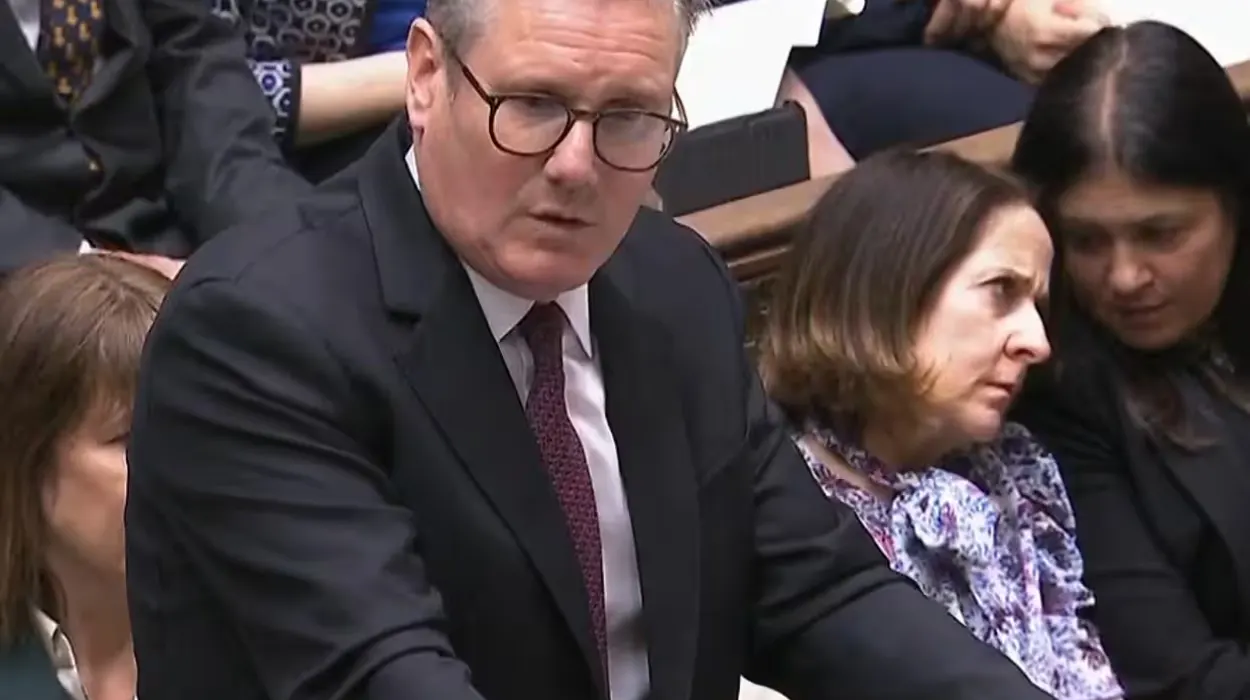UK (Parliament Politics Magazine) – Children’s charities urge Keir Starmer to scrap the two-child benefit cap, with polls showing broad voter support, including among swing voters.
As reported by The Guardian, Labour-aligned organisations and children’s welfare charities are stepping up demands for Keir Starmer to scrap the two-child benefit limit. They cited polling that shows consistent support across the electorate, including Labour voters sympathetic to Reform.
What did a charity’s survey reveal about public support for struggling families?
Ahead of the launch of the national child poverty framework, a survey backed by several charities shows strong public demand for families to be made a central priority.
Around 73% of respondents agreed that all children deserve a good childhood, even if it means higher government spending to support needy families. Meanwhile, 71% believe the government should prioritise funding for children.
The research was commissioned by a coalition of charities, including Save the Children, the Child Poverty Action Group, the Children’s Society, and Barnardo’s.
According to polling backed by charities, those who voted Labour in 2024 but may shift to Reform still strongly support efforts to tackle child poverty.
Among Reform-curious Labour voters, 76% agreed that “low benefit levels for families with children means children have unequal opportunities.” The same percentage was found among loyal Labour supporters and was comparable to those thinking of moving to the Greens or Lib Dems.
Eighty-two percent of Labour voters considering moving to Reform agreed that “the gap between the poorest and richest families in the UK is too large.” This compares closely to the 86% of loyal Labour voters who intend to stay.
What did Alison Garnham say about tackling child poverty?
Alison Garnham, the chief executive of CPAG, representing the organisation stated,
“Almost a year after the election, the government’s manifesto commitment to tackle child poverty remains hugely popular.”
He said,
“A child poverty strategy that increases living standards and improves life chances will make a crucial difference to children, their families and the country alike. The public stands in support of the 4.5 million children in the UK living in poverty and now it’s time for government to act – starting by scrapping the two-child limit.”
What did Baroness Ruth Lister say about the two-child benefit limit?
Baroness Ruth Lister, ex-director of CPAG, urged that the two-child benefit restriction be scrapped. She also called for the abolition of the benefit cap.
She called on Labour to prioritise child poverty in the government’s agenda.
Ms Lister, in her report, said the government must invest enough funds to meet its manifesto promise for an ambitious strategy. She added this money should come from the richest members of society.
She called for the need to include people who have experienced poverty in the strategy’s rollout and evaluation. She further suggested raising universal credit and child benefit, along with extending free school meals to every child.
What did Ed Dorrell say about Labour voters and child poverty?
Ed Dorrell, partner at Public First, which surveyed 2,008 UK adults last month, stated,
“Potential switchers from Labour to Reform, the Greens, and the Lib Dems are united in wanting to end child poverty, in thinking the government has a role to play in this, and in believing that reversing benefit cuts would help.”
He added,
“If Labour wants to win their lost voters back, making progress on child poverty is something to prioritise, not play down.”
What is Number 10 doing about the two-child benefit limit?
A child poverty task force at Number 10 is preparing an action plan expected this summer. Yet, the government has resisted demands to scrap the two-child limit.
Scrapping the two-child limit means
- Families receive benefits for all children, not just two.
- Ends restrictions on child element of universal credit for third and subsequent children.
- Widely seen as the most targeted way to reduce child poverty.
- Supported by charities and think tanks as cost-effective.
- Would help lower child poverty affecting 4.5 million children.
- Currently resisted by the government despite public and charity pressure.

